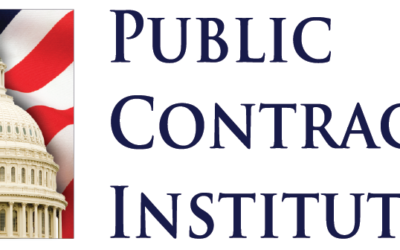The Federal Acquisition Regulation (“FAR”) gives contracting officers significant flexibility in selecting the procurement method they choose to use. FAR 6.401 (Sealed Bidding and Competitive Proposals) states:
Sealed bidding [using an Invitation for Bids-IFB] and competitive proposals [using a Request for Proposals-RFP], as described in [FAR] parts 14 and 15, are both acceptable procedures for use under subparts 6.1, 6.2; and, when appropriate, under subpart 6.3 [these parts require full and open competition, full and open competition after exclusion of sources and other than full and open competition, respectively]
(a) Sealed bids. []Contracting officers shall solicit sealed bids if-(1) Time permits the solicitation, submission, and evaluation of sealed bids;(2) The award will be made on the basis of price and other price-related factors;(3) It is not necessary to conduct discussions with the responding offerors about their bids; and(4) There is a reasonable expectation of receiving more than one sealed bid.
(b) Competitive proposals. []1) Contracting officers may request competitive proposals if sealed bids are not appropriate under paragraph (a) of this section;(2) Because of differences in areas such as law, regulations, and business practices, it is generally necessary to conduct discussions with offerors relative to proposed contracts to be made and performed outside the United States and its outlying areas. Competitive proposals will therefore be used for these contracts unless discussions are not required and the use of sealed bids is otherwise appropriate.
Under some circumstances, if an IFB is canceled but the requirement remains, the agency may complete the procurement by converting it to a negotiated procurement, but FAR 14.404-1 places limitations on when this is permitted. In Great Lakes Dredge & Drydock Co., LLC, B-421676.4, Dec. 19, 2023, the Government Accountability Office (“GAO”) held that the Army Corps of Engineers (“Corps”) had made an impermissible conversion to competitive proposals (negotiated procurement) and sustained a protest.
The corps used an IFB for beachfill and period nourishment for shoreline areas in New Jersey. The cost of this project would be shared equally with New Jersey pursuant to the Water Resources Development Act of 2007. The Corps received two sealed bids, with the lowest bid being $67.6 million, that of Great Lakes. However, the bid exceeded the Independent Government Estimate (“IGE”) of $46.6 million and the amount of funds ($60.4 million) available for the project. The Corps canceled the IFB citing that all bids were at unreasonable prices and cancellation was in the public interest. Five days later, the Corps advised Great Lakes that it was changing the method of procurement from IFB to RFP (negotiated procurement). Great Lake protested the conversion. GAO stated that the contracting officer cited three reasons for the cancellation: (1) the bids were unreasonably high, (2) the bids exceeded the IGE by more than 25% (prohibited by 33 USC § 624(a)(2)) and (3) the bids received exceeded available funds. The contracting officer further stated that the conversion was in the best interest of the government in accordance with FAR subsections 14.404-1(e) and (f).
During GAO’s consideration of the protest, Great Lakes argued that the IGE was unrealistic. The Corps, during the protest, dropped the other two reasons for the agency’s conversion, stating that the primary motivation in cancelling the solicitation was that it did not have enough funding, and requested that GAO make its decision solely on that basis.
GAO ruled that an agency’s determination that funds are not available is a sufficient reason to cancel a solicitation (agencies cannot award contracts that exceed funds available). Further, the protester’s bid exceeded the available funding. However, FAR 14.404-1 subsection (c)(6) permits conversion of an IFB to a negotiated procurement only where all prices were unreasonable, for which price reasonableness can’t be determined, where the bids were collusive or where no responsive bid was received from a responsible bidder. This meant to GAO that the only basis for the conversion was Section 14.404-2(c)(10)—where cancellation was in the public’s interest. However the FAR expressly precludes such a conversion, stating that instead the contracting officer shall proceed with a new acquisition. FAR 14.404-1(e)(2). In conclusion, the GAO found that the Corps lacked authority for converting the IFB to a negotiated procurement, and sustained the protest.
Takeaway. Contracting Officers must be careful when converting a procurement from an IFB to an IFB to comply with the requirements of FAR 14.404-1.
For other helpful suggestions on government contracting, visit:
Richard D. Lieberman’s FAR Consulting & Training at https://www.richarddlieberman.com/, and Mistakes in Government Contracting at https://richarddlieberman.wixsite.com/mistakes.


